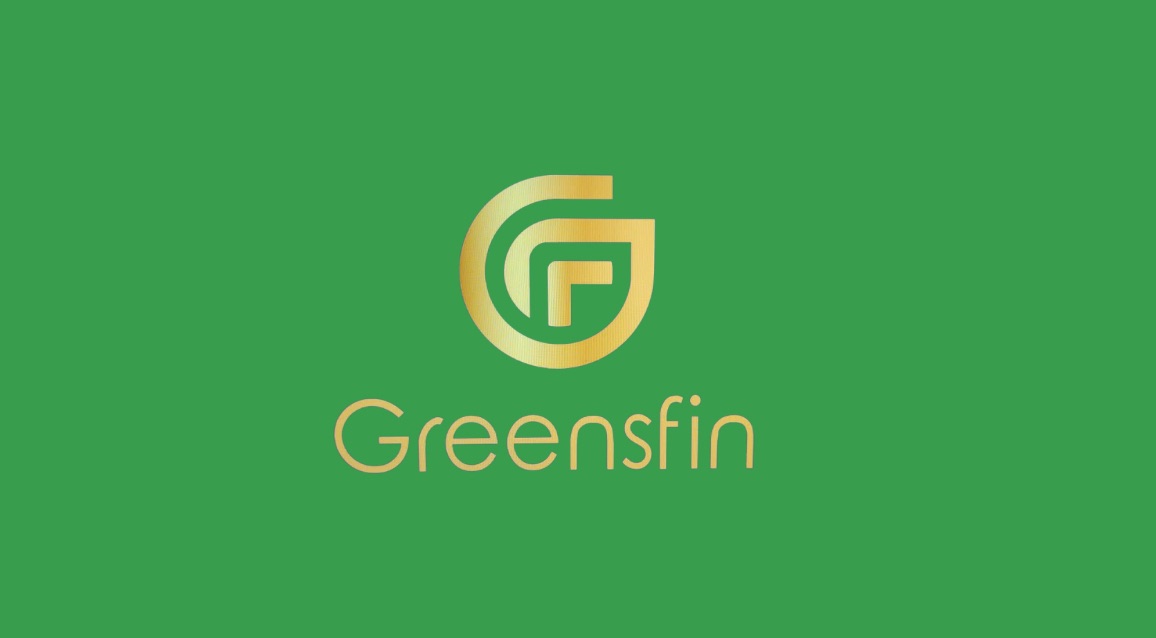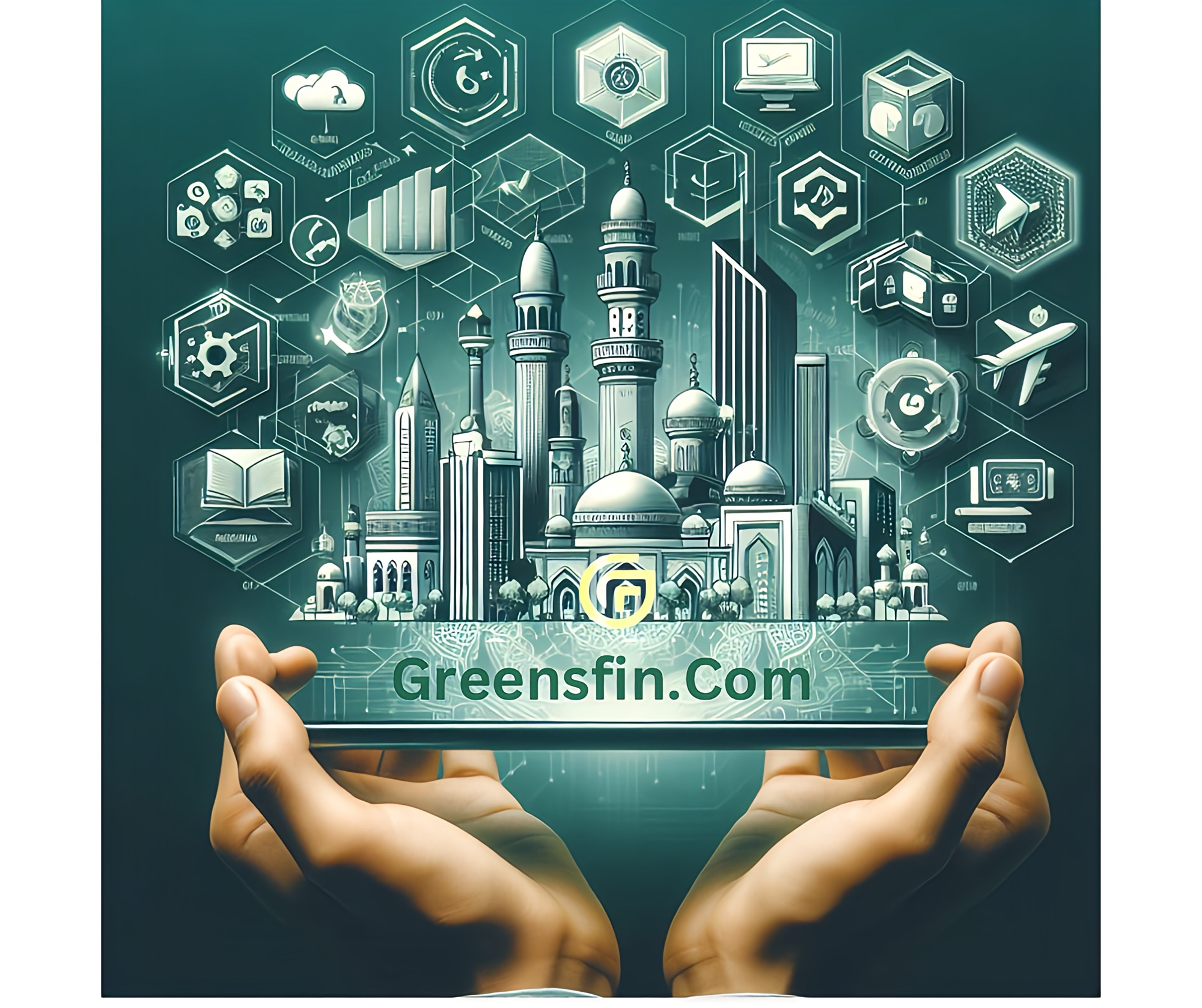In the heart of the Dubai International Financial Centre (DIFC), Greensfin Tech Innovation Ltd stands as a beacon of innovation, driving the evolution of Islamic digital banking and fintech solutions. As a registered company in the DIFC Fintech Innovation Hub, Greensfin Tech is committed to delivering cutting-edge products that seamlessly blend technology with the principles of Islamic finance.
End-to-End Services: A Robust Team for Comprehensive Solutions
Greensfin Tech takes pride in its multidisciplinary team, comprising full-stack front-end and back-end developers, UI/UX experts, graphic designers, digital marketing specialists, and a dedicated web and cloud hosting team. This powerhouse of talent enables Greensfin Tech to offer end-to-end services, ensuring clients receive a holistic and tailored approach to their digital banking and fintech needs.
The Product Suite: White Label Solutions Empowering Businesses
1. White Label Magento-based Online Marketplace:
– A versatile e-commerce platform hosted on the cloud, supporting a myriad of goods and services.
– Features integrated payment gateways, wallets, and a diverse range of Islamic financial products, including investments, takaful, and financing options.
Visit: [imarkplace.com](https://imarkplace.com) for a live demonstration.
This white label product is available for complete or partial sale, with licensing options and robust support agreements for customization.
2. Islamic Credit Card (Charge Card Model):
– An innovative credit solution adhering to Islamic finance principles.
– Introduces a charge card model for responsible and interest-free transactions.
3. Receivable Financing or Factoring:
– Tailored financial solutions for businesses, providing liquidity by leveraging their receivables.
4. Earned Salary Financing:
– Empowering individuals by offering financing options based on their earned salary.
5. Supply Chain Financing:
– Streamlining financial processes within the supply chain for enhanced efficiency and liquidity.
6. Vendor or Merchant Financing:
– Supporting the growth of vendors and merchants through tailored financing solutions.
7. Consumer Financing:
– Enabling consumers to access financing options aligned with Islamic principles.
8. Drop Shipping Model:
– Facilitating seamless transactions through a drop-shipping model for enhanced business operations.
Innovation, Customization, and Support: The Greensfin Advantage
Greensfin Tech emphasizes innovation, providing white label products that can be seamlessly integrated into diverse business models. The company offers Software as a Service (SaaS) or complete selling options, accompanied by Service Level Agreements (SLAs) and robust support agreements. Clients benefit not only from the products but also from the expertise and commitment of Greensfin Tech’s development and support teams.
In conclusion, Greensfin Tech Innovation Ltd emerges as a trailblazer in the Islamic fintech landscape, offering a comprehensive suite of products designed to propel businesses into the digital future while adhering to the principles of Islamic finance. With a commitment to innovation, customization, and unwavering support, Greensfin Tech is poised to shape the future of Islamic digital banking and fintech solutions.
Title: Unveiling the Future: Tokenization of Assets Reshaping Finance and Beyond
In the rapidly evolving landscape of finance and technology, the concept of tokenization has emerged as a transformative force, unlocking new possibilities for the management and exchange of assets. Tokenization involves converting real-world assets into digital tokens on a blockchain, enabling fractional ownership, increased liquidity, and enhanced accessibility. Let’s delve into how and where this revolutionary technology is reshaping various industries.
Understanding Asset Tokenization:
Asset tokenization leverages blockchain technology to represent ownership of real-world assets digitally. These assets can range from real estate and fine art to stocks and commodities. Each token corresponds to a share or fraction of the underlying asset, making it divisible and tradable on digital platforms.
1. Real Estate: Unlocking Liquidity and Accessibility
Tokenization of real estate is a game-changer for an industry traditionally characterized by illiquidity and high entry barriers. Investors can now buy and trade fractional ownership in properties, promoting liquidity and opening up real estate investments to a broader audience. This democratization of real estate has the potential to reshape how we perceive property ownership.
2. Art and Collectibles: Democratizing the Art World
Tokenizing art and collectibles provides a novel solution to the challenges of provenance and fractional ownership. Art enthusiasts can own a piece of their favorite artwork, fostering a more inclusive art market. Additionally, blockchain ensures transparency and authenticity, mitigating concerns related to forgery and counterfeit art.
3. Financial Instruments: Efficiency in Securities Trading
Tokenization streamlines the issuance and trading of traditional financial instruments, such as stocks and bonds. By converting these assets into digital tokens, transactions become faster, more cost-effective, and transparent. This has the potential to reshape capital markets, making them more efficient and accessible.
4. Supply Chain: Enhancing Transparency and Traceability
In industries like supply chain and logistics, tokenization ensures transparency and traceability. Each step in the supply chain can be recorded on the blockchain, creating an immutable ledger of transactions. This not only reduces fraud but also enhances efficiency by providing real-time visibility into the movement of goods.
5. Intellectual Property: Protecting Creators and Innovators
Tokenization can be applied to intellectual property rights, providing a secure and transparent way to manage ownership and licensing. Musicians, writers, and other content creators can tokenize their work, ensuring fair compensation and eliminating intermediaries.
6. Gaming and Virtual Assets: Monetizing Digital Ownership
In the gaming industry, asset tokenization allows players to truly own and trade in-game assets. This creates a thriving ecosystem where virtual assets have real-world value, and players can monetize their gaming experiences.
Challenges and Considerations:
While the potential benefits of asset tokenization are vast, challenges such as regulatory uncertainty, standardization, and security concerns must be addressed. Regulatory frameworks need to adapt to accommodate this innovative technology, ensuring investor protection and market integrity.
Conclusion:
The tokenization of assets is a paradigm shift in how we perceive and interact with value. By breaking down traditional barriers and introducing unprecedented liquidity, transparency, and accessibility, asset tokenization is not just transforming finance but revolutionizing industries across the board. As we navigate this transformative era, the full potential of asset tokenization is yet to be realized, promising a future where ownership is redefined and financial markets are reshaped.
Tokenization in Islamic finance holds significant potential, aligning with the principles of Shariah law while introducing efficiency and inclusivity. Here’s how tokenization could be applied in the realm of Islamic finance:
1. Real Estate Sukuk (Islamic Bonds):
– Tokenizing real estate assets for Sukuk issuance can enhance liquidity and accessibility. Investors can buy and trade digital tokens representing shares in Shariah-compliant real estate projects. This facilitates fractional ownership in a transparent and compliant manner.
2. Gold and Precious Metals:
– Tokenizing ownership of gold and other precious metals provides a digital and secure way for investors to hold assets compliant with Islamic finance principles. Each token can represent a specific amount of gold, allowing for fractional ownership and efficient trading.
3. Islamic Collective Investment Schemes:
– Asset tokenization can be applied to Islamic funds and investment portfolios. Investors can acquire tokens representing their share in a diversified portfolio of Shariah-compliant assets, fostering inclusivity and transparency in investment.
4. Trade Finance and Murabaha Transactions:
– Tokenization can streamline trade finance processes, especially in Murabaha transactions. Digital tokens can represent ownership of goods in transit or warehouse receipts, ensuring transparency and traceability in compliance with Islamic finance principles.
5. Islamic Venture Capital and Crowdfunding:
– Tokenization opens doors for Islamic venture capital and crowdfunding platforms. Entrepreneurs seeking Shariah-compliant funding can tokenize their businesses, allowing investors to acquire shares in a manner consistent with Islamic finance principles.
6. Islamic Art and Waqf Assets:
– Tokenizing art and waqf assets adheres to Islamic principles of ethical investment. Investors can digitally own and trade tokens representing shares in art collections or waqf projects, fostering a sustainable and transparent approach to charitable endowments.
7. Takaful (Islamic Insurance):
– Tokenization can enhance transparency and efficiency in the Takaful industry. Tokenized insurance policies can represent ownership in Takaful funds, enabling policyholders to easily trade or transfer their shares, thus fostering a more dynamic and participatory insurance market.
8. Zakat and Islamic Philanthropy:
– Blockchain and tokenization can enhance the administration of Zakat and other Islamic charitable contributions. Tokenizing donations allows for transparent tracking of funds, ensuring they are distributed according to Shariah principles and providing donors with visibility into the impact of their contributions.
While implementing tokenization in Islamic finance, it is crucial to collaborate with Shariah scholars to ensure compliance with Islamic principles. The technology should be adapted to align with the specific requirements of Shariah law, addressing concerns related to ownership, transparency, and ethical considerations. By doing so, tokenization can play a pivotal role in modernizing Islamic finance, making it more accessible, efficient, and in harmony with the principles of Islamic economics.
Islamic Real Estate Investment Trusts (REITs) are financial instruments that comply with Shariah principles, providing a way for investors to participate in real estate ventures while adhering to Islamic finance guidelines. In Islamic REITs, the investment and management of properties are conducted in accordance with Shariah law, avoiding elements such as interest (riba) and engaging in activities considered unethical or non-compliant.
Key Features of Islamic REITs:
1. Asset Backing and Income Distribution:
– Islamic REITs own and manage income-generating real estate assets, such as commercial properties, residential complexes, or hospitality establishments.
– Rental income and capital gains from the properties are distributed among the investors, following the principles of profit-and-loss sharing.
2. Shariah Compliance:
– All activities undertaken by Islamic REITs must comply with Islamic finance principles. This includes avoiding interest-based financing, ensuring the permissibility of the underlying assets, and maintaining ethical business practices.
3. Transparency and Accountability:
– Islamic REITs prioritize transparency in their operations. Regular financial reporting and disclosure mechanisms ensure that investors are well-informed about the performance and status of the real estate portfolio.
4. Shariah Supervisory Board:
– Islamic REITs typically have a Shariah Supervisory Board or committee consisting of qualified Islamic scholars who provide guidance on the compliance of the REIT’s activities with Shariah principles.
5. Asset Diversification:
– Diversification of assets is encouraged to mitigate risks. Islamic REITs may invest in a range of real estate sectors to ensure a well-balanced and resilient portfolio.
6. Liquidity and Tradability:
– Units of Islamic REITs can be traded on stock exchanges, providing investors with liquidity. This enables them to buy or sell their shares in the REIT without the complexities associated with direct ownership of physical properties.
Benefits of Islamic REITs:
1. Accessibility to Real Estate Investments:
– Islamic REITs provide investors with access to real estate investments without the need for large capital outlays. This democratizes real estate ownership and allows a broader segment of the population to benefit from income-generating properties.
2. Risk Mitigation through Diversification:
– By investing in a diversified portfolio of real estate assets, Islamic REITs help spread risks, minimizing the impact of fluctuations in any particular sector or property.
3. Liquidity and Marketability:
– Tradable units on stock exchanges offer investors the flexibility to enter or exit their real estate investments more easily compared to traditional property ownership.
4. Professional Management:
– Islamic REITs are managed by professionals with expertise in real estate investment and management, relieving individual investors of the day-to-day operational responsibilities.
5. Ethical and Shariah-Compliant Investments:
– Islamic REITs align with ethical and moral considerations outlined in Shariah law, providing a socially responsible and ethically sound investment avenue for those following Islamic finance principles.
Islamic REITs have gained traction as an innovative financial instrument, allowing investors to engage in real estate markets while upholding the principles of Islamic finance. As the global interest in Shariah-compliant finance grows, Islamic REITs are expected to play an increasingly significant role in the diversification and growth of investment portfolios adhering to Islamic principles.



